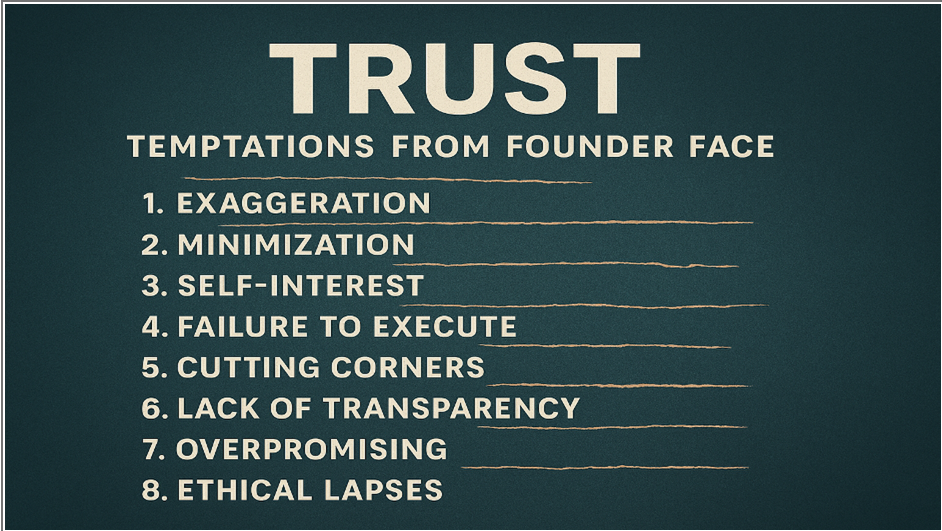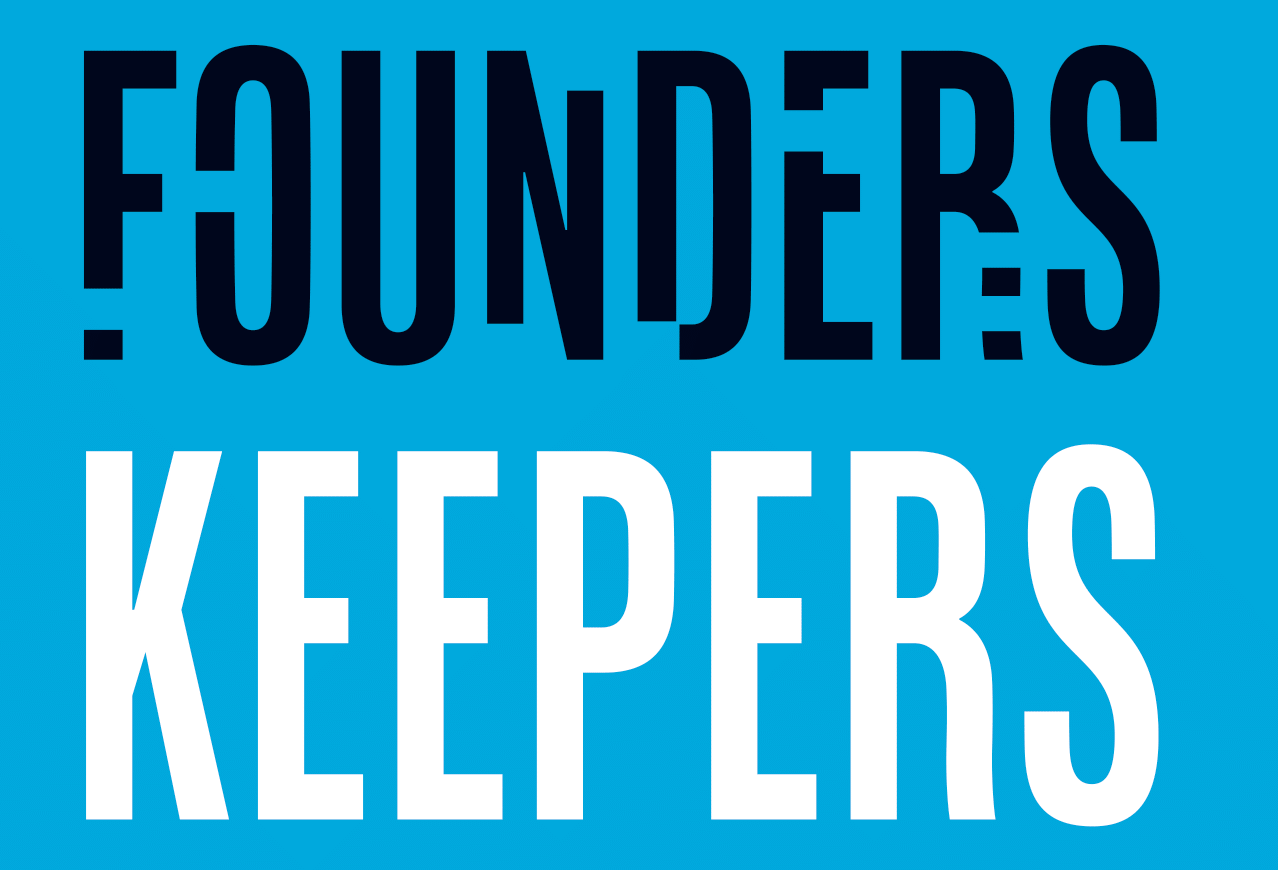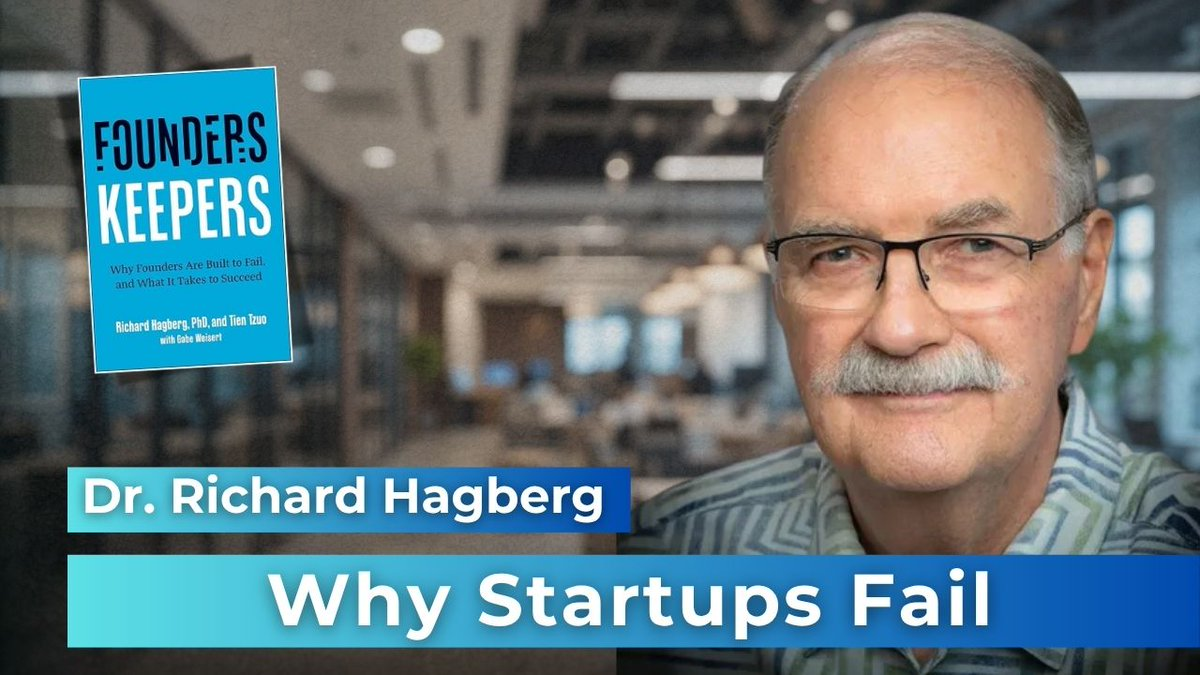Article
The Founder's Trust Trap: Why Your Startup's Future Depends On It

Let's talk about the elephant in every startup room: trust.
As a founder, you're a visionary, a risk-taker, a relentless force of nature. You've battled against impossible odds, fueled by ambition and a singular vision. These very traits, which propelled you from an idea to a burgeoning business, are often celebrated as the hallmarks of entrepreneurial genius.
But here’s the uncomfortable truth: those same strengths, left unchecked, can become the insidious forces that destroy the very trust your startup desperately needs to survive and thrive.
Research reveals a stark reality: trust isn't a "nice-to-have" soft skill; it's the indispensable capital that underpins every successful venture. It's the bedrock of high-performing teams, the fuel for innovation, and the hidden engine of organizational resilience. Ignore it at your peril, because the cost of low trust isn't just a dip in morale—it's a direct hit to your bottom line, your talent pipeline, and your legacy as a leader.
Trust: The Unseen Currency of the Startup World
In the chaotic, high-stakes environment of a startup, trust is amplified. It’s the "first step of genuine and effective leadership” , and without it, people simply won't follow you. This isn't just about warm feelings; it's about hard business metrics.
Companies with high trust factors report a staggering 74% less stress, 13% fewer sick days, and 40% less burnout among employees. Employees in high-trust organizations are also 50% more likely to stay long-term , drastically cutting turnover costs and retaining invaluable institutional knowledge. When trust flourishes, collaboration ignites, leading to more innovative solutions and superior problem-solving. Google's own Project Aristotle, a deep dive into team effectiveness, concluded that high-performing teams are simply impossible without trust.
This is the "Founder Effect" in action. Your behavior, whether positive or negative, is magnified due to your central, often singular, role in shaping early-stage culture and strategy. Unlike larger, established corporations, your startup's very DNA is a direct reflection of you.
The Three Pillars: Your Trustworthiness Litmus Test
Research consistently points to three fundamental pillars of trustworthiness: Ability, Integrity, and Benevolence. Here’s the critical, often misunderstood, part: trustworthiness is a product of these three, not a sum. A zero score in any one pillar results in zero trustworthiness overall.
Let that sink in. You can be a brilliant strategist (high Ability), but if your team perceives you as dishonest (zero Integrity), your trust account is empty. You can be the most ethical person in the room (high Integrity), but if you consistently fail to deliver on promises (zero Ability), trust evaporates. And perhaps the most insidious blind spot for many founders: you can be competent and honest, but if you lack genuine care and kindness for your team (zero Benevolence), you will not be trusted.
Authenticity is the bedrock upon which these pillars stand. It's about transparency regarding intentions, a willingness to admit mistakes, and an unwavering adherence to your core values. Without genuine authenticity, any attempt at building trust will be perceived as manipulative, leading to skepticism rather than genuine trust.
The Startup Crucible: Why Founders Fall Into Traps
The startup environment is a unique pressure cooker. High uncertainty, relentless pressure to scale, and limited resources create a volatile landscape. This constant flux demands rapid iteration and quick decision-making. But this urgency can lead to "hasty decisions" and "sub-optimal risk-taking behaviors".
This is where "Founder's Syndrome" (or "founderitis") often takes root. It's a pathological pattern where your initial strengths, vital for launching, transform into weaknesses that hinder growth. It's an "autoimmune disease" that ultimately undermines the very organization you worked so hard to build.
The journey is often lonely, exacerbating stress and leading to mental health struggles that are 50% more common for founders than the general population. This pervasive stress "clouds judgment" and "hampers long-term planning," directly eroding trust. When you neglect your own mental health, you inadvertently "undermine the importance of the mental health of the people you are leading".
The Trust Builders: Founders Who Get It Right
Despite the inherent challenges, many founders successfully cultivate deep trust. They understand that it's a deliberate, multi-faceted process rooted in specific leadership qualities and behaviors.
1. Demonstrating Ability and Adaptability: Founders build trust by consistently delivering on promises and demonstrating competence. This means being agile and willing to pivot when necessary, learning from mistakes, and adapting to market shifts.
- Positive Example: Daniel Dines of UiPath. UiPath, now a $10 billion company, wasn't an overnight success. Founder Daniel Dines navigated multiple major pivots, from an outsourcing company to a consumer products foray that "didn't work," before finally productizing their services into what became UiPath. His willingness to learn from "early missteps and failed attempts" and adapt the business model demonstrated his ability and built trust through resilience and consistent effort. This adaptability reinforces the "Ability" pillar, showing stakeholders that the founder can steer the ship through turbulent waters.
2. Upholding Unwavering Integrity: Integrity is non-negotiable. Founders who "walk the talk"—consistently upholding values, maintaining honesty, and ensuring fairness—build profound trust.
- Positive Example: A Transparent Tech Startup. One tech startup embraced transparency from day one, openly sharing both successes and challenges with all team members. This commitment fostered a culture of trust, attracting and retaining top talent who valued an environment where their voices were heard and contributions recognized. This transparency, rooted in integrity, empowered employees to propose bold solutions and challenge the status quo, driving sustainable growth. Investors also explicitly expect founders to adhere to both the "letter and the spirit of the law" and to behave ethically.
3. Cultivating Benevolence and Psychological Safety: Trust is deeply relational. Founders who show genuine concern for their team's well-being, demonstrating empathy, respect, and kindness, foster psychological safety.
- Positive Example: Airbnb's Foundational Trust. When Airbnb launched, convincing strangers to rent out their homes was a massive trust hurdle. Founders Brian Chesky and Joe Gebbia tackled this head-on by prioritizing trust and safety. They implemented rigorous verification processes, secure payment systems, and user reviews. These measures, born from a deep understanding of user concerns and a commitment to their well-being, were crucial in building a safe and reliable platform, fostering a vibrant community, and ultimately disrupting the hospitality industry. This commitment to user and host well-being exemplifies benevolence.
The Trust Destroyers: Traps Even the Best Fall Into
Even with good intentions, founders can inadvertently erode trust. These behaviors, often amplified by startup pressures, can be catastrophic.
1. Lack of Transparency and Inconsistent Communication: When your actions don't align with your words, credibility fades. Information silos and inconsistent messaging breed distrust.
- Negative Example: Mark Zuckerberg and Facebook's Data Scandals. Mark Zuckerberg, despite his vision, faced significant trust erosion at Facebook due to a perceived lack of transparency and inconsistent communication regarding user data. Revelations about Cambridge Analytica exposing personal data of 87 million users, followed by admissions of hackers accessing 50 million users' information, and investigations revealing data sharing with major companies like Netflix and Amazon, shattered public and investor trust. This "say-do gap" between stated privacy commitments and actual practices profoundly undermined integrity and transparency.
2. Compromised Integrity and Unethical Conduct: This is the most catastrophic trust destroyer. Unchecked ambition and intense pressure can lead founders to believe "the rules don't apply to them".
- Negative Example: Elizabeth Holmes (Theranos) and Trevor Milton (Nikola). Elizabeth Holmes's ambition to revolutionize healthcare at Theranos morphed into manipulation and deceit, fabricating capabilities her technology couldn't deliver. This led to investors, employees, and patients suffering the consequences. Similarly, Trevor Milton, founder of Nikola, succumbed to pressure to deliver on promises, leading him to "embellish—no, outright fabricate—the capabilities of Nikola's technology." When the truth emerged, his reputation crumbled, and investors lost millions. These cases vividly illustrate how a fundamental compromise of integrity, driven by ambition and pressure, leads to "shattered credibility" and "burnt bridges". Misleading investors about revenue isn't just unethical; it can be criminal securities fraud with severe legal implications.
3. Absence of Benevolence and Empathy: Neglecting the human element—empathy, respect, and genuine care—is profoundly destructive.
- Negative Example: Travis Kalanick at Uber. Travis Kalanick, Uber's co-founder, was ultimately forced to resign by an investor revolt due to his "brash and at times inappropriate behavior" that "repeatedly raised eyebrows" and was blamed for creating a "toxic culture". This lack of benevolence, characterized by disrespect and a disregard for employee well-being, directly eroded trust and led to significant talent drain. Publicly humiliating team members, disengaging emotionally, or adopting a "one-size-fits-all" leadership approach with diverse teams all signal a profound lack of care.
4. Micromanagement and Control-Freak Tendencies: This signals a fundamental lack of trust in employees and creates a vicious cycle of distrust.
- Negative Example: The Bottleneck Founder. Founders who feel the need to oversee every decision create significant bottlenecks, disempowering employees and stifling creativity. Talented team members often leave because they don't feel trusted or valued. Micromanagement explicitly communicates, "I no longer think you are the right person to do this job". This toxic behavior destroys morale, causes employees to delay decisions, and withholds valuable insights. It's a direct attack on the "Ability" pillar of trust, implying incompetence and leading to lower performance, decreased morale, and higher turnover.
5. Impulsivity and Resistance to Adaptation: Constantly shifting priorities or clinging rigidly to outdated methods undermines trust in your ability to lead effectively.
- Negative Example: The "Analysis Paralysis" Founder. Some founders, despite the need for agility, are "incredibly rigid," preferring "familiar methods" and struggling to let go of past successes. They may suffer from "analysis paralysis" when faced with incomplete information, a common occurrence in startups. This rigidity can manifest as dictatorial behavior and a struggle to accept alternative viewpoints. This stifles innovation, as employees hesitate to propose new ideas if they believe the founder won't be receptive.
The Path Forward: Rebuilding and Sustaining Your Trust Capital
The good news is that trust, even when broken, can be rebuilt. It requires deliberate, sustained effort and a profound commitment to self-awareness.
- Lead by Exemplification: Your actions must consistently align with your words. Admit missteps openly and share the steps you're taking to rectify them. This consistent "say-do" message builds profound credibility.
- Prioritize Open and Consistent Communication: Establish platforms for transparent dialogue, like town hall meetings and regular updates. Actively seek input, schedule regular check-ins, and create safe spaces for genuine dialogue.
- Cultivate Self-Awareness and Mental Well-being: Address your own fears and psychological traps. Prioritize your mental health, as it directly impacts your judgment, empathy, and ability to lead effectively.
- Foster Psychological Safety: Normalize failure as part of growth, encourage open dialogue, and reward calculated risks . This creates an environment where employees feel secure enough to challenge the status quo, admit mistakes, and contribute new ideas.
- Empower and Delegate: Move beyond micromanagement. Clearly define ownership, empower teams to make decisions, and model trust by delegating effectively .
- Embrace Adaptability and Humility: Be willing to pivot and learn from mistakes. When you demonstrate the humility to adjust strategy, it reinforces trust in your leadership and judgment.
The Ultimate Competitive Advantage
Trust is not merely a desirable attribute; it is the fundamental bedrock of high-performing, resilient organizations. Unequivocally demonstrates that founders who prioritize and actively cultivate trust unlock unparalleled levels of employee engagement, productivity, innovation, and overall organizational success.
Your journey as a founder is fraught with challenges, but the most formidable ones often come from within. By consistently embodying competence, upholding ethics, and demonstrating genuine care, while actively mitigating the psychological traps and pressures inherent in the entrepreneurial journey, you can build and sustain the high-trust environments essential for navigating today's complex business landscape and achieving long-term, sustainable growth.
Trust, in essence, is your ultimate competitive advantage. Are you ready to wield it?
share this
Related Articles
Related Articles

STAY UP TO DATE
GET PATH'S LATEST
Receive bi-weekly updates from the church, and get a heads up on upcoming events.
Contact Us










